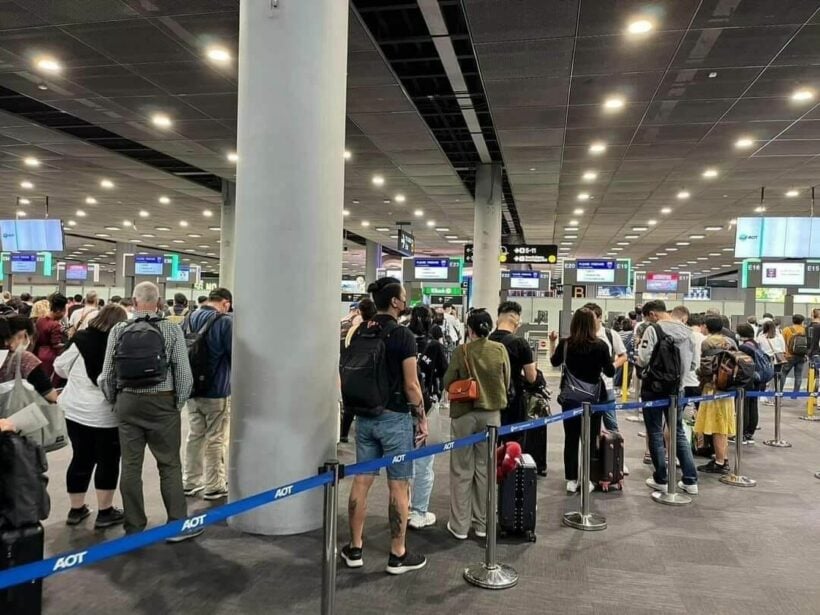Departure Tax: Thailand considers charging 1000 baht to leave country

Thailand‘s Revenue Department proposed that a 1000 baht “departure tax” be charged upon Thai citizens and foreign permanent residents in a bid to prevent excessive overseas spending. The idea has been met with resistance from tourism officials.
Airline passengers would be charged 1000 baht to leave the country and those exiting via land and sea would be charged 500 baht under the decree in a bid to deter locals from spending too much money abroad.
The department proposed the idea under a 1983 legal provision, announcing public hearings on the matter as soon as this week. To collect public opinion on the departure tax, the Revenue Department posted a survey on its website…
“The Revenue Department is in the process of receiving opinions to discuss the Outbound Travel Tax Decree (1983). The Revenue Department invites government agencies and the private sector, including the general public, to share opinions and suggestions on the Royal Decree through this form between May 3 – May 17, 2023.”
The announcement was met with criticism from tourism officials who believe the tax would hurt Thailand’s recovering tourism industry, especially given that the perpetually-delayed 300 baht inbound “tourist tax” is still on the shelf amid industry concerns.
A departure tax would be an added headache for airlines which Thailand’s airports desperately needs to connect with to get tourist numbers back up to pre-pandemic figures.
The departure tax is designed to prevent Thais from spending too much abroad. However, the President of the Thai Travel Agents Association (TTAA), Charoen Wanganamot, said the idea is illogical since 70% of the tourism industry’s income is generated by inbound tourism and only 30% of expenses are related to outbound tourism.
However, the deputy director of the department – Winit Wisetsuwannaphum – said yesterday that the department isn’t planning on imposing the departure tax. Although a ministerial regulation waived the tax in 1991, the constitution requires the department to assess the suitability of the 40-year-old decree by collecting public opinions, said Winit.
Confusingly, the opinion poll “is not a plan to collect the departure tax,” said the deputy director. Next year, the department will run polls on inheritance tax and petroleum income tax, he added.
Latest Thailand News
Follow The Thaiger on Google News:


























